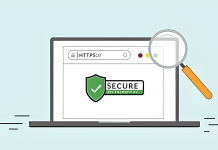In the vast digital landscape, website security is paramount. With cyber threats on the rise, it’s crucial to recognize the subtle signs that your website might be under attack. In this article, we’ll explore five hidden indicators that hackers might already be infiltrating your online domain.
Router Login Failure
The first red flag is often subtle but significant. If you find yourself struggling to access your router’s admin settings, it could be a sign that unauthorized users are trying to gain control. Secure your router with strong passwords and regularly monitor access logs to thwart potential hackers.
Site Becomes Slow
A sudden slowdown in your website’s speed might not just be a technical glitch. Hackers could be injecting malicious code or files, causing your site to drag. Learn how to detect these issues and implement strategies to ensure optimal website performance.
Ransomware Messages
Ransomware messages, whether via email or instant messages, are ominous signs of a potential hack. We’ll delve into the characteristics of such messages and provide guidance on how to handle these alarming situations.
Slow Internet Speed
A sluggish internet connection might be more than just an inconvenience; it could signal unauthorized access to your network. Discover the connection between slow internet speed and security breaches, along with actionable steps to fortify your network.
Emails Sent to Spam
Hackers often leverage malware on compromised websites to send spam emails. Learn how to prevent your website from becoming a conduit for spam and protect your email reputation.
how the hackers gained access is key to preventing future breaches
Abnormal Browsing Behavior
Unexpected redirects, browser configuration changes, or incessant pop-ups can be signs of a hacked website. We’ll explore these abnormal behaviors and equip you with the knowledge to address them effectively.
Additional Signs of a Hacked Website
Beyond the initial indicators, we’ll discuss additional signs such as browser alerts, hosting provider actions, customer feedback, and Google flags. Understanding these signs is crucial for a comprehensive security strategy.
Unwanted Redirects or Advertisements
Discover how hackers exploit websites for unwanted redirects and advertisements. Implement preventive measures to safeguard your site’s integrity and user experience.
Google Safe Browsing Warnings
Google Safe Browsing warnings are not to be ignored. We’ll elaborate on the implications of such warnings and emphasize the urgency of addressing issues promptly to maintain your website’s credibility.
Spam Pages and Search Results in Other Languages
Explore the detrimental effects of spam pages and search results in multiple languages. Gain insights into eliminating these issues and ensuring a seamless user experience.
Pop-ups, Phishing Pages, or Fake Captcha Pages
Learn to identify and combat harmful pop-ups, phishing attempts, and fake captcha pages. Protect your visitors from falling victim to these common hacking tactics.
Site Notice: “This Site May Be Hacked”
A direct warning on your site is a clear signal. Understand the gravity of such notices and take immediate steps to rectify the situation, safeguarding your website and its visitors.
Browser Warnings in the URL Bar
Decode warnings in your browser’s URL bar and take swift action to address potential threats. We’ll guide you on the necessary steps to secure your website and restore user confidence.
Conclusion: In the digital realm, vigilance is key. By recognizing these hidden indicators of a hacked website and taking proactive measures, you can safeguard your online presence. Stay informed, stay secure.
FAQs:
- How can I secure my router against potential hacks?
- Regularly update your router’s firmware and use a strong, unique password.
- What should I do if I receive a ransomware message?
- Avoid clicking on any links and report the incident to your IT support or cybersecurity expert.
- Can a slow internet connection be a sign of hacking?
- Yes, slow internet speed can indicate unauthorized access. Check your network for any suspicious activities.
- How do I handle abnormal browsing behavior on my website?
- Conduct a thorough security audit, remove any malicious code, and reinforce security protocols.
- What should I do if my website receives a Google Safe Browsing warning?
- Take immediate action to identify and eliminate any security vulnerabilities. Consult with cybersecurity professionals if needed.
At WebHostSec.com, we cover all the essential information you need to make informed decisions about web hosting, website builders, VPS, and more. From exploring the best web hosting services and VPS hosting to finding cheap domains, free website hosting, and WordPress hosting, we provide in-depth insights and guides. Whether you are looking for the best website builders, ecommerce platforms, or comparing cloud hosting and dedicated servers, we've written about every topic to help you succeed online.
Check out our articles on web development courses, domain availability, reseller hosting, email hosting, and much more to navigate the web hosting world with confidence!

